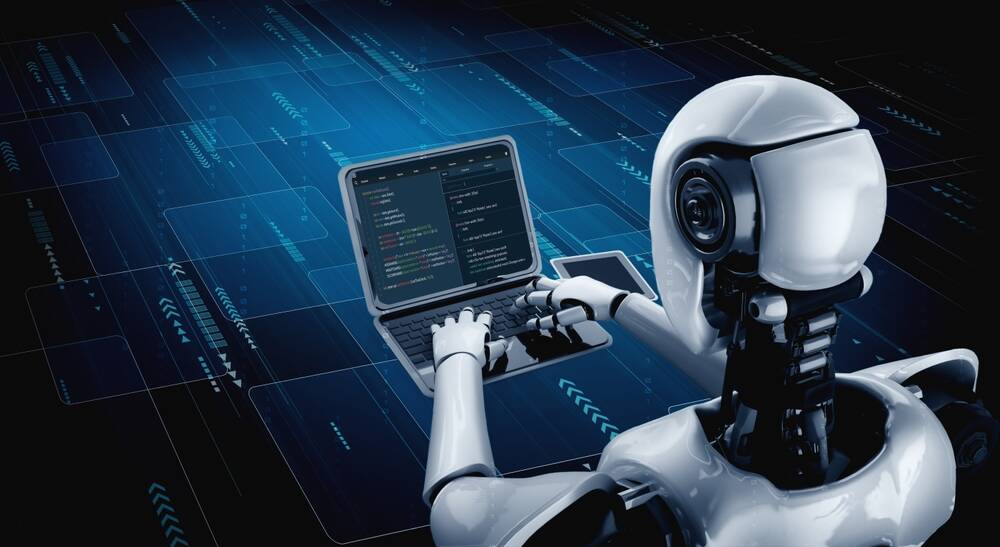Envisioning software program advancement in 2030, helped by AI
3 min read

Half a years for this reason, software program advancement will certainly be transformed by AI aid, argue 4 academics from the University of Lugano in Switzerland.
In a preprint paper labelled, “From Today’s Code to Tomorrow’s Harmony: The AI Improvement of Developers’ Regular by 2030,” scientists Matteo Ciniselli, Niccolò Puccinelli, Ketai Qiu, and Luca Di Grazia, explain exactly how they visualize AI aid evolving in the years to find, with an eye toward urging the job required to realize that vision.
Looking particularly at the implementation phase of the software application advancement lifecycle, they suggest a follower to AI code suggestion tools like GitHub Copilot, OpenAI ChatGPT, Google Gemini, and Tabnine called HyperAssistant.
HyperAssistant is imagined as an extra qualified version these days’s automated shows support devices, with a remit that prolongs past resource code production. The recommended AI aide would certainly sustain designers’ psychological wellness by suggesting work breaks and recommending activities. It would be better at bug and vulnerability detection, and at code optimization.
We emphasize AI as a corresponding force, boosting designers’ capabilities instead of replacing them
As imagined, HyperAssistant would certainly work with conferences with relevant employee, in whatever setting the programmer favors. And it would certainly support the creation of brand-new features and the growth of new skills through finding out advice.
” We imagine HyperAssistant, an augmented AI device that uses comprehensive support to 2030 designers, resolving present restrictions in mental health assistance, mistake discovery, code optimization, team interaction, and ability advancement,” the writers describe.
” We emphasize AI as a corresponding pressure, augmenting developers’ capabilities instead than changing them, bring about the creation of innovative, trustworthy, and safe software application solutions.”
Generative AI is not rather there yet. When it proposes code, it can make blunders, or hallucinations in marketing terminology. As the authors observe, present tools do not resolve the mental aspects of programming, don’t maximize code really well, do not do much to facilitate group harmony, and fail to think about developer’s distinct ability or demands. What’s even more, designers might compound the limitations of AI by putting too much trust fund in its suggestions and falling short to confirm them.
The writers lay out how a day in the life of a programmer could search in 2030, if the awaited HyperAssistant ever before emerges as thought of.
” Ashley, the designer in 2030, shows up in the workplace and quickly notifications that some code has changed since yesterday,” they describe in their paper. “Nonetheless, many thanks to HyperAssistant, a concise summary exists to her, highlighting only the essential edits. With this effectiveness, she promptly understands the updates and prepares to start her jobs.”
” As she starts coding, a smart bug discovery system informs her of a mistake she inadvertently introduced. The system not just reports the insect, yet also suggests potential fixes, streamlining the debugging procedure.”
It also offers a notice concerning how the code differs from what’s described in the equivalent javadoc comments, with a positioning referral pulled from code created by a senior programmer at the same procedure.
HyperAssistant also goes so much as to set up a conference in between Ashley and the elderly designer, increased by pertinent paperwork. And in the process the AI is expecting typos or other metrics that could show the need to pause. With such assistance, the writers suggest, Ashley will require only half a day in 2030 to do what took her a full day in 2024.
Taking into consideration that by 2040 various other researchers have actually suggested most code will be created by devices, HyperAssistant doesn’t appear like that much of a stretch.
The authors say that AI has the possible to make software application development extra meeting and efficient. Maybe so, as long as it’s HyperAssistant and not HyperManager. ®
